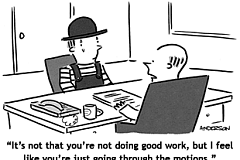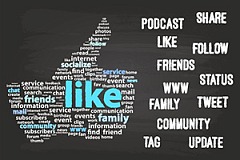 The world of HR is always changing, and 2020 has sent shockwaves throughout the professional landscape. As many businesses struggle to keep their heads above water during lockdowns and pandemic panic, HR professionals have been trying to navigate an unstable professional landscape.
The world of HR is always changing, and 2020 has sent shockwaves throughout the professional landscape. As many businesses struggle to keep their heads above water during lockdowns and pandemic panic, HR professionals have been trying to navigate an unstable professional landscape.
However, the story is bigger than that and we want to make sure that you're ready for anything 2021 brings to your office. That's why we’ve put together this must-know list of trends HR professionals and business owners can expect to see.
1. Physical and Mental Employee Wellbeing
In the past, most employers’ worry about wellness would start and end in basic medical insurance coverage. While it's true that many employers have been focusing more on wellness over the past few years, 2021's focus will be something entirely different.
COVID-19 has completely changed the business landscape. Thanks to the pandemic, there's a special focus on physical and mental health for employees. This hyperfocus on wellness at work can be shown in a variety of ways.
Some employers may focus on improving their sick time policies. Since getting to see a doctor can be difficult, some employers may choose to forgo requirements around notes to excuse absences. Others may give their employees more sick days overall or encourage employees to work from home if they aren't feeling well.
The push for mental health awareness has led to some employers offering special time off for employees that need to de-stress. Others have focused on choosing more comprehensive insurance options to offer coverage for mental health services and counseling.
2. Younger Employees Entering the Workforce
Want a foolproof way to see if you or your HR professionals are out of touch? How do you or they feel about the biggest issue employers face? If you’re up to speed, you and your HR professionals will talk about how to prepare for millennial workers.
[quotes]The way people talk about millennials you'd assume that they were just graduating high school.[/quotes] The truth is that the oldest millennials are turning 40 now and the youngest are in their 20s. The oldest members of Generation Z are entering the workforce and you need to be ready to attract the next generation of young talent.
Gen Z isn't going to be impressed by flashy office perks like beer fridges and a ping-pong table. They want jobs with substance. They're incredibly tech-savvy, interested in working for companies that share their values, and care a lot about work-life balance.
[quotesright]All of these qualities may mean that it's time for a major shift in company branding and culture.[/quotesright] It's important to stay relevant and to attract the freshest talent possible. Consider brainstorming with people in leadership positions and in marketing to think about the best way to make the next generation interested in your company.
3. Remote Work is the New Normal
When people had to make the quick switch to work remotely in March 2020, everyone thought it would be a temporary thing.
People have long talked about how businesses will be handling transitioning back to fulltime office work. [quotesright]However, it's looking like working 40-plus hours a week at this office won't be coming back anytime soon. [/quotesright]
Employees like the freedom of being able to work from home and even feel more relaxed and productive when they're working remotely. Employers are starting to see how much money they can save by downsizing their office space or eliminating it completely.
It's time to start thinking about remote work as a new normal and not a temporary situation. [quotesright]HR professionals are going to have to figure out how to function in a fully-remote or half-remote environment. [/quotesright]
Certain policies at the workplace may have to change. Think about how simple things like conduct, dress codes, and tracking hours will have to change when employees are no longer expected to be in the office.
It's also important to think about how to showcase a workplace culture when there's no physical workplace. Bringing together divided teams will be a critical skill for HR professionals to figure out and deal with effectively. Specialized help on how to manage remote workers and programs to help remote workers stay connected are available at reasonable prices. Check out Distance Leader for proven programs you can use.
4. Soft Skill Advantages
Job descriptions have gotten much more in-depth over the past few years. Instead of focusing on hard skills, more employers have been putting an emphasis on finding potential employees that have the important soft skills.
The shift to a focus on soft skills has little to do with changing cultural norms and a lot to do with practicality. There are plenty of courses and training programs available for people that want to learn hard skills.
You can easily teach a programmer a new language and a front desk employee can be trained to follow a new sign-in protocol. It's much harder to teach someone how to be a natural problem solver, keep their emotions in check when dealing with difficult employees, or work well in groups.
Soft skills may be in demand but testing for them is still relatively new. [quotesright]Start thinking of ways for your company to place more of an emphasis on soft skills. [/quotesright]
Some HR professionals have found ways to determine people's soft skills by asking them to explain situations where their problem solving and people skills came in handy. Others set up specific situations in interviews where potential employees will have to show off their soft skills first hand.
5. Environmental Sustainability and Social Issues
We mentioned earlier that Generation Z places special importance on working for companies that share their core beliefs. This trend isn't just being seen in Gen Z, People across multiple generations now see the value in working for companies that closely align with their views on important social issues.
The environment and climate change are huge issues more people are taking notice of. Plenty of employees want to work for companies that operate sustainably and donate to environmental causes.
Having a recycling program is a start, but it won't be enough to keep people's interest in 2020. Think about environmentally friendly programs your business can support. Consider starting an office compost bin, rewarding people for carpooling or taking public transit, or supporting a local environmental cause.
Sustainable business operations are also a hot button issue with employees. Think of ways for your company to cut back on waste and work more efficiently in the coming year.
6. HR Evolution
When people thought about HR personnel in the past, they would envision someone that handles hiring, firing, and potential employee problems. Today's HR role is much more nuanced, and people that want to succeed in the field should embrace it rather than fight it.
Instead of working behind the scenes, HR is taking center stage. Plenty of HR professionals are writing articles, going on podcasts, and speaking on panels.
People in HR can be cultural ambassadors for the companies they work for. They can exemplify all of the company's most important values and also be their loudest cheerleaders.
[quotes]This kind of exposure can do a lot to help companies and hiring initiatives.[/quotes] You can attract plenty of new employees by showcasing the kind of culture they can expect at the workplace. Focusing on putting out new and exciting media about your company's culture can help with public perception and may even attract new clients.
It's also fair to mention that doing this kind of work can personally help your career. Showing that you're happy to be a cultural ambassador for a company can give you an advantage over the competition.
We encourage everyone in HR to make 2021 the year they take a more active role in their company. Think about what you can do to promote your company's values and how your work can benefit everyone involved.
Jumpstart Your 2021 Plan
HR trends may come and go, but being a good employee is a skill that will never go out of style. If you spend time focusing on the future and honing your core skills, you won't have any issue being ready for 2021 and beyond.
Before we leave, employers, it’s time for you to invest in developing your employees soft skills. Here’s why so they plan better, communicate better, manager better and engage better. Don’t be like those companies who see employee soft skill development an expense that does not pay off. [quotesright]Smart owners today know investing in their people’s skills and personal development, not more tech, is often where gains of 5% 10% and 20% in productivity can be made because people skills are an almost totally neglected asset. [/quotesright]
We covered a lot in this post, but there are still plenty of other topics to explore. That's why we want to hear from you!
Do you have specific questions about ways to improve your business? If you have some aggravating or pressing questions, get in touch we’ll help you with the solutions.
Want to explore further? Questions?
Get in touch and let's set up a time to talk. Brian Tracy USA: 877.433.6225 Email Me














